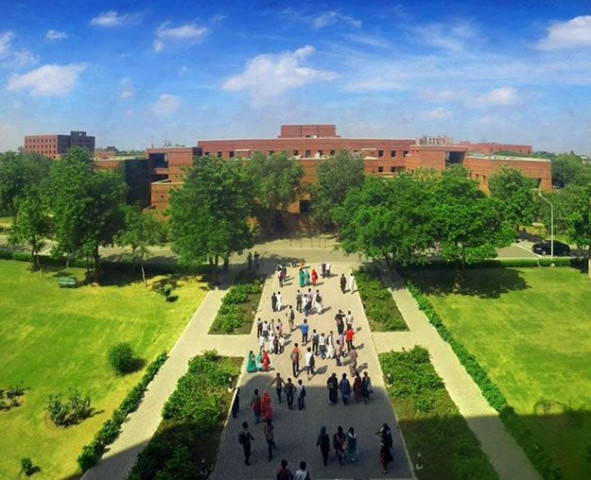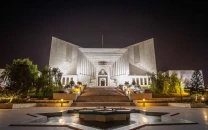More money for varsities sought
HEC chairman encourages universities to generate their own funds

The HEC chief called for filling the gap between theory and practice in disaster management. PHOTO: FILE
This was stated during the 23rd Vice Chancellors Committee Meeting held on Monday. As many as 137 vice chancellors and rectors from across the country attended the moot. Higher Education Commission (HEC) Chairman Dr Tariq Banuri and HEC Executive Director Lt Gen (retired) Muhammad Asghar.
Islamic International University Islamabad (IIUI) Rector Dr Masoom Yasinzai, who chaired the meeting, reposed his trust in the government to protect the higher education sector’s budget.
Appreciating the government’s commitment towards higher education, the vice chancellors sought the government’s support to meet the rising financial requirements of the universities.
Committee members noted that the HEC had undertaken an extensive budgetary assessment exercise together with the finance ministry which estimated that the higher education sector of the country requires Rs103.55 billion for the Financial Year 2019-20. The previous government had allocated Rs46.68 billion for higher education commission for the fiscal year 2018-19 which the Pakistan Tehreek-e-Insaf (PTI) government had cut.
Per the Indicative Budgetary Ceilings (IBCs), the higher education sector was likely to get a recurring grant of only Rs58.50 billion for the fiscal year 2019-20.
Noting the government’s stated support for higher education and research, the vice chancellors hoped that it will translate into a significant release of funds.
The meeting also a number of agenda items, including the higher education sector’s funding and emerging challenges, four-year integrated undergraduate programme, relevance in the digital age, and HEC policies and regulations.
Dr Banuri highlighted issues and challenges pertaining to the financial crisis in higher education.
Apprising the vice chancellors about his meeting with President Dr Arif Alvi, Prime Minister Imran Khan and Federal Education Minister Shafqat Mehmood, Dr Banuri said that they had all assured him of their support to the higher education sector.
“The sector has strong and unambiguous support from the current government,” he asserted.
Even though government funding was an integral financial component for universities in the country, the HEC chairman pointed out that it was time that varsities explored complementary financial components such as government support and non-government fundraising.
“We are also committed to undertaking complementary activities such as fundraising and service efficiency,” he said.
Proposing measures regarding fundraising, he suggested that varsities mobilise their alumni to generate funds apart from seeking support from philanthropists and urge bilateral donations, offer executive training, encourage and formalise consultancies, attract fee-paying foreign students, strengthen public-private partnership, streamline patents and royalties, and promote sports.
On efficient use of resources, Dr Banuri suggested controlling operational expenditures by rationalising their faculty to student and faculty to staff ratios, controlling non-salary expenses, and diverting funds only towards the most important areas.
Earlier, Dr Yasinzai set the tone by suggesting that the higher education sector was passing through a tough time.
He acknowledged that the financial crunch faced by the government was, in turn, creating economic hardships for varsities.
“Universities must play their role in fundraising and look for new avenues to generate funds,” he stressed.
HEC Consultant Academics Dr Zulfiqar Gilani briefed the vice chancellors on HEC’s plan for a four-year integrated undergraduate programme. He said that the HEC was exploring possibilities of developing such a programme which inculcates in students the abilities of critical thinking, evidence-based observation and research, and lifelong learning.
“As in the rest of the world, the undergraduate degree should be a terminal degree for most students, who, upon graduation, should have adequate knowledge and skills for employment or other gainful work. Also, graduates interested in further education, such as Masters or MPhil or doctoral studies, should have sufficient knowledge and adequate grounding in research,” Dr Gilani said.
The meeting elected Quaid-i-Azam University Vice Chancellor Dr Muhammad Ali as the new chairman of the Vice Chancellors’ Committee.
Published in The Express Tribune, April 23rd, 2019.



















COMMENTS
Comments are moderated and generally will be posted if they are on-topic and not abusive.
For more information, please see our Comments FAQ